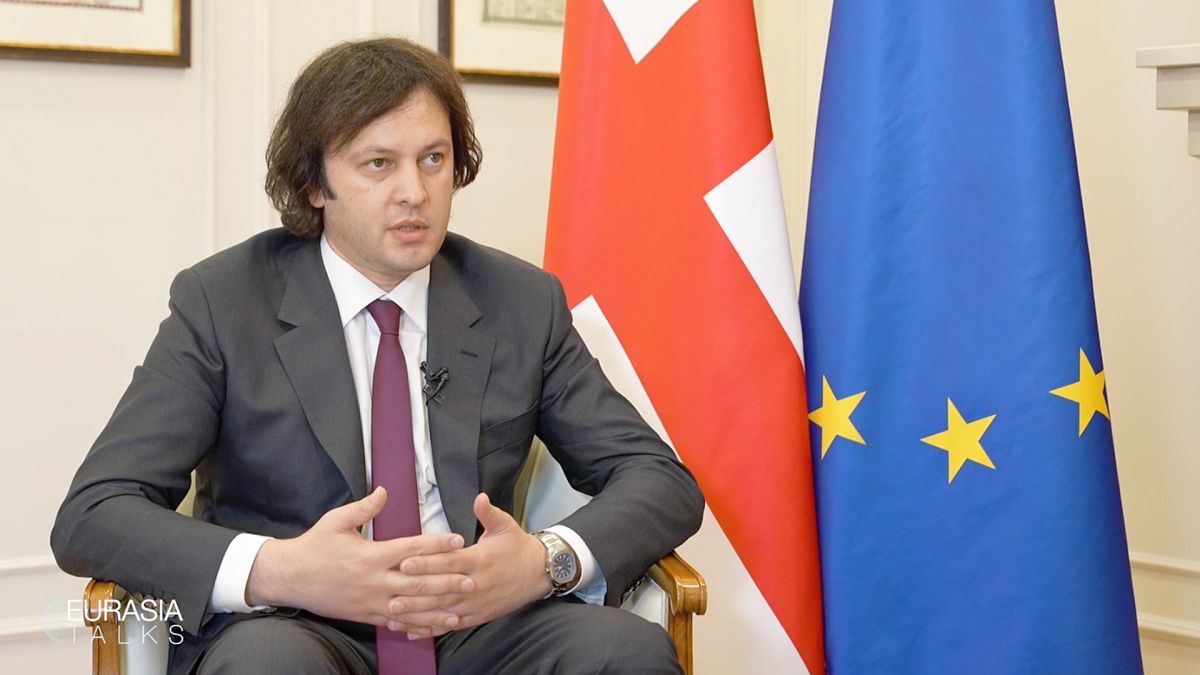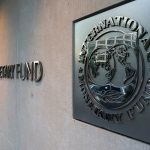Georgia’s Prime Minister Irakli Kobakhidze recently sat down with Euronews for an in-depth interview, where he highlighted the importance of the upcoming elections in Georgia. These elections are crucial for the country’s EU integration efforts and to distance itself from Russian influence. With economic growth on the rise and political polarization increasing, the outcome of these elections could potentially shape the nation’s future trajectory.
The political landscape in Georgia has become increasingly polarized, with conflicting forecasts from opinion polls adding to the tension. The ruling Georgian Dream party is framing the elections as a choice between “peace and war”, while opposition parties see it as a battle between the democratic West and authoritarian Russia. Kobakhidze emphasized the significance of these elections in determining the country’s path moving forward.
Georgia has been experiencing rapid economic growth in recent years, with nearly double-digit growth rates and the highest growth in Europe. The country’s economic prosperity plays a crucial role in its aspirations for EU membership, as Georgia aims to align itself with European standards and values. Kobakhidze stressed the importance of maintaining this growth trajectory to secure Georgia’s position within the EU.
Despite facing challenges in dialogue with the EU, Georgia has made significant strides towards European integration under the Georgian Dream government. The country has signed the Association Agreement and obtained the visa-free regime for its citizens. Kobakhidze expressed optimism that relations with the EU and the US would improve post-election, opening up new opportunities for Georgia’s European aspirations.
For Georgia, being part of the European family holds historic significance, as the country has always been associated with Europe and Christianity. Joining the European Union would mean higher levels of prosperity and development for Georgians, making it a top foreign policy priority for the nation. Kobakhidze reiterated Georgia’s commitment to EU accession and the benefits it would bring to the country and its people.
In response to questions about Georgia’s stance towards Russia, Kobakhidze clarified that Georgia maintains no diplomatic relations with Russia. The lack of Russian influence in Georgian politics and media channels makes it unlikely for Russia to interfere in the country’s elections. Despite some policies drawing comparisons to those in Russia, such as the “foreign agents” and LGBTQ+ laws, Kobakhidze emphasized that these decisions are made independently by the Georgian government.
Georgia has a complicated history, having lost territories throughout its past, especially in the last 30 years. However, this history has provided valuable lessons that have helped Georgia navigate challenges and maintain peace in the country. As a politician, Kobakhidze believes that this experience has shaped his policies and approach to governance, allowing him to address issues effectively despite the surrounding conflicts.
When it comes to the war in Ukraine, Georgia has stood firmly in support of Ukraine’s sovereignty and territorial integrity. The ongoing conflict between Russia and Ukraine has prompted Georgia to condemn Russian military aggression and show solidarity with Ukraine on the international stage. Georgia’s position on the war is based on international law standards and reflects its commitment to peace and stability in the region.
In light of Western sanctions against Russia, Georgia has opted not to join these sanctions due to its minimal trade ties with Russia. The country’s trade with Russia only accounts for 0.3% of its total trade, making it impractical to enforce economic sanctions that would have little impact on Russia’s economy. Despite the opposition’s push for sanctions, Georgia has chosen to prioritize stability and avoid escalating conflicts in the region.
Looking ahead, Georgia’s strategic location plays a crucial role in trade and energy security in the region. The country is investing in infrastructure projects to strengthen its connectivity with neighboring countries like Azerbaijan and Turkey. Projects like the Black Sea underwater cables and the development of highways and airports aim to enhance Georgia’s position as a key player in regional trade and energy networks. Georgia’s strategic location makes it an important player in the region’s energy security efforts and strengthens its ties with European markets.











